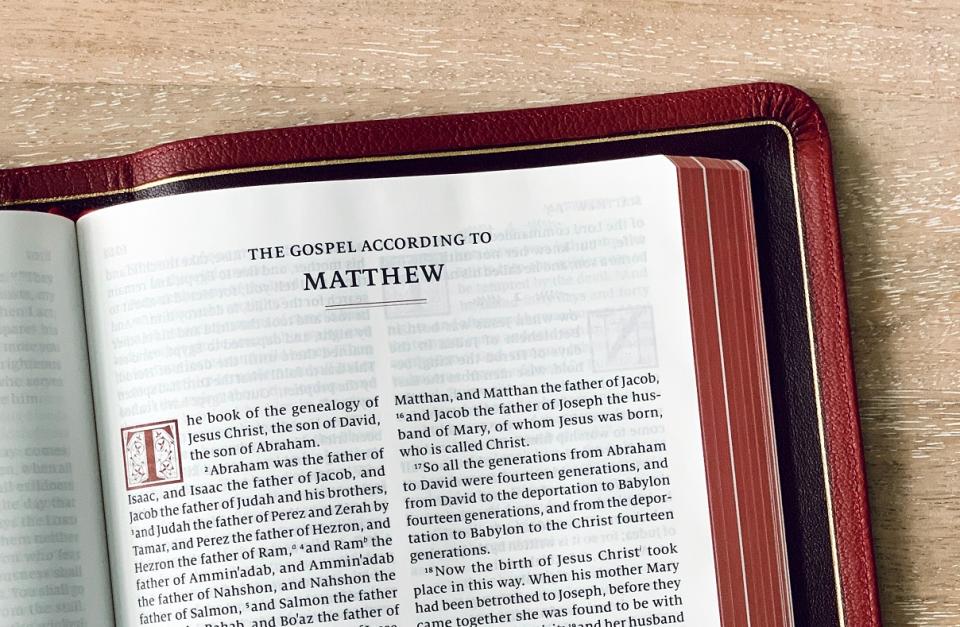I don’t often think about Kyrie – and, in fact, when I saw the name, just like that, “Kyrie,” in my newsfeed last week I thought I was seeing the Greek word kyrie, meaning “Lord,” as in kyrie eleison, “Lord, have mercy.” That was an exciting moment: New Testament Greek breaking the social media barrier (I briefly thought). It turned out we were talking about a basketball star.
Nevertheless, NT Greek turned out to be related. Because the question at issue was anti-Judaism. What Kyrie (the basketball guy) meant in tweeting out a movie called “Hebrews to Negroes: Wake Up Black America” is not entirely clear. But the problem raised is perennial, because, as Professor Alan Hayes has recently pointed out on this blog, anti-Judaism has a sadly robust history.
And this anti-Judaism has often been buttressed by appeal to the gospels, especially Matthew.
Reading the gospel in Greek
This is where Greek comes in. Because—I want to say in what follows—if we were to read the gospel in Greek; if we were to take the gospel seriously enough to read it in its own words, it would not be so.
Take, for instance, Matthew’s very first verse. It begins with two little words, and those two words mean more in the Greek than any English translation can capture.
An account of the genealogy (or “birth”) of Jesus the Messiah, the son of David, the son of Abraham, Matt 1:1 reads, in English translation (NRSV)
Or
This is the genealogy of Jesus the Messiah, the Son of David, the son of Abraham (NIV)
Or
The book of the genealogy of Jesus the Messiah, etc. (ESV)
Or
The book of the generation of Jesus Christ, etc. (KJV).
Even in English translation, Matthew’s beginning is, one would think, discouraging to anti-Jewish readings of the gospel and replacement theologies, for Matthew in this verse places Jesus squarely within the family of Israel.
But there is more. In the Greek, Matthew’s first words are pointed. Βίβλος γενέσεως (biblos geneseōs), Matthew says—and in those words the Book of Genesis sounds its name right at the beginning of the gospel of Jesus Christ. The Greek word Matthew uses here, γένεσις (genesis), does indeed mean “genealogy,” or “origin” (hence also “birth”). But say it out loud, and you hear “genesis” – or Genesis, the first book of the Hebrew Scriptures, called Genesis because it is the book of origins; called Genesis already in the time of Matthew.
Like a stone in its foundation
Biblos geneseōs: with those two Greek words, Matthew practically trumpets the foundational place of Israel and its books, people, and history in God’s ongoing work of salvation. Who is Jesus? He is the one who belongs within the story that starts in Genesis and highlights one people in particular, the people of Abraham and David, the Jewish people. With these two words, our whole New Testament begins in Genesis with the people of Abraham; the gospel of Jesus is sunk into Judaism like a stone into its foundation.
It is true that it is possible to read these words in the Greek, with Chrysostom for instance, and still read Israel as excluded from God’s salvation (though Chrysostom’s anti-Judaism is complicated by a very biblical sense of the faithfulness of God and the redemptive thrust of the gospel).
It is possible to read in this way, even if you are reading the Greek. But it is something of an eisegetical feat, a kind of wilful ignoring of the words themselves.
If you do not have those Greek words in your ear, though, if you do not hear that shout of “Genesis!” at the beginning of the gospel (at the beginning of the whole New Testament), it is easier to miss Matthew’s meaning. Without the gospel’s own Greek words, it is easier to dislocate the gospel from its Jewish heart.
In two Greek words, the hope of Israel sounds
In Matthew’s next verses, the insistence in these first two words on the Jewish people and their history, continuity and centrality in this story of salvation continues, in Judah and his brothers—thus Matthew includes the whole twelve tribes of Israel in Jesus’ genealogy—and in the unexpected shout-out to the women, Tamar, Rahab, Ruth, and the wife of Uriah, the remarkable women who peopled Israel’s history, peopled it quite literally, with their sons, and brought the Messiah to birth.
Some of the women Matthew names are gentiles. Even the gentiles, as Matthew tells the gospel story, find their hope within the history of Israel, within the people of Israel: Rahab the prostitute and Canaanite, Ruth the Moabite, both drawn into God’s purpose and God’s people, the Jewish people chosen by God “in the beginning,” from Genesis, to be a blessing to all nations.
Within the gospel’s first six verses, Matthew has laid the shape of a theology of salvation rooted in Genesis and the Jewish people, a salvation to which even the gentiles may belong. How shall the gentiles belong? Precisely, as the women of Matthew’s genealogy demonstrate, by being drawn into the Jewish people. There is much more to come about the central role of the Jewish people in God’s salvation. But it all begins with two Greek words. In them the scriptures, the story, the hope of Israel –and thereby of the world - sounds.
I’d like to reach out to Kyrie and tell him how exciting his name is. But I will be satisfied with reaching out to you. There are innumerable treasures in our gospel, more than we can ask or imagine. Greek is there to help us unlock them.





